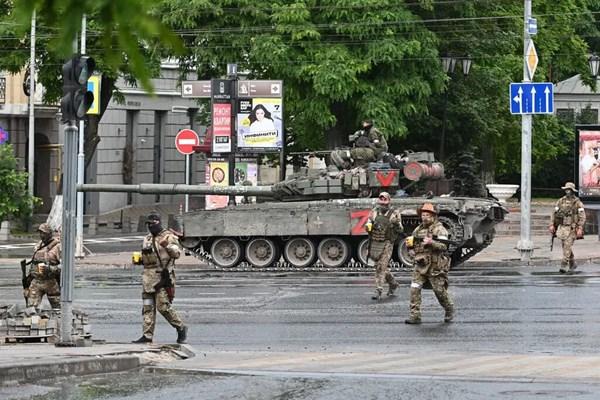Speaking in an interview with the website of the Strategic Council on Foreign Relations, Afifeh Abedi referred to the recent developments in Russia and the attack of the Wagner group on the southern cities of the country, which led to the declaration of a state of emergency in Moscow and the order to arrest the leader of that group, and said: The rebellion of the Wagner Group against the Russian army issued this message to domestic public opinion, foreign public opinion and Russia’s rivals and enemies that this country is facing difficult conditions.
Saying that there is no doubt in a big country like Russia there are many hidden angers and differences of opinion towards the government, she noted: Of course, identifying those critical points and faults is important and key for Russia’s enemies, but the action of the Wagner Group can be considered as a turning point in Russia’s domestic policy; this means that the Russian government, which was previously worried about the occurrence of a tsunami of political and economic crisis, now has concerns about a similar rebellion and military crisis and should seek more measures to deal with any kind of similar political or military crisis.
The researcher of the Research Center of the Expediency Council said: Probably after this, we will face changes in some political, intelligence and security institutions of Russia, and of course those changes will not be cheap either.
Abedi, reminding that the Russian political system until a decade ago was mostly known as a plural oligarchic system, which, of course, served Putin’s agenda, continued: But since Putin came to power, at the same time as the conflict with the West increased and with the motive of strengthening his power, in the past decades, he tried to quietly transform this oligarchic system into a unified authoritarian political system in his power chamber; but the Ukraine war and its political, economic, and military requirements, as well as the requirements to deal with political, economic, and military sanctions, and the wrong decision to trust the Wagner Group, created a disruption in this process, and the Wagner rebellion led by Prigozhin was one of its consequences.
Saying that with regard to Prigozhin’s statements, a range of Russian soldiers agrees with those criticisms, she noted: Various scenarios are proposed by observers regarding the reasons for Prigozhin’s courage to rebel against the Russian army. One of those scenarios was coordination with some units or senior commanders of the Russian army, and the other was the possibility of cooperation and coordination with foreign agents. It seems that what undermines the possibility of such scenarios was that the rebellion was put down in less than a day. If there were any kind of cooperation and coordination, it would reduce the possibility of reaching an agreement so quickly. If there were such pre-planned scenarios, we should have witnessed a series of critical events in the Russian government and power, but such events did not happen. Of course, we cannot ignore the possible role of some foreign services in the instigation and action of the head of the Wagner Group.
Abedi added: There is no doubt that a part of the Russian army is dissatisfied with the continuation of the war in Ukraine and the abstract decisions imposed by the political structure. However, the speed of action in dealing with Wagner’s rebellion and the subsequent strict security measures could postpone the possibility of any similar scenario until the distant future.
The researcher of Russian developments referred to the criticisms of Prigozhin, the leader of the Wagner Group, that Shoigu, the Russian Minister of Defense, misled Putin about the actual dimensions of the threat to Ukraine and caused the start of the war and said: With the concerns created in Moscow about relying on military contractors, the situation for Russia in the Ukraine war will undoubtedly become more difficult and complicated.
The researcher of the Research Institute of the Expediency Council, saying that there is a possibility of changing Russia’s strategy in the field, explained: With the recent developments, the probability that heavy and decisive weapons will be used instead of mercenary forces to maintain the achievements in the field increases. The Russians have repeatedly mentioned the possibility of using nuclear weapons in the Ukraine war. If the field conditions in the war go towards weakening the Russian front, the possibility of Russia resorting to nuclear deterrence or a similar strategy in the Ukraine war will increase.
At the same time, she said: Although in this situation, some people raise the possibility of political solutions for the war in Ukraine, it seems that despite the fact that since the beginning of the war, Putin has always shown a desire to negotiate with Ukraine and its allies, due to the blow to Russia’s reputation, in the current situation, there is no possibility of an intense negotiation; because by showing any willingness to negotiate in this situation, the motivation of the West to take advantage of the possible weakening of Russia in the war will increase.










0 Comments